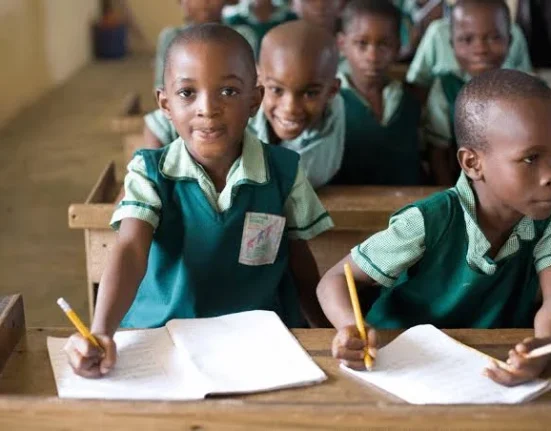Health professionals across Nigeria are advocating for a shift in the country’s immunisation strategy, calling on the Federal Government to implement reward-based policies that encourage parents to fully vaccinate their children rather than relying on coercive approaches that may worsen vaccine hesitancy.
Speaking during the ongoing World Immunisation Week, observed globally from April 24 to 30, paediatricians and public health experts expressed concern over Nigeria’s low immunisation uptake and warned that punitive measures—such as arresting parents who fail to vaccinate their children—could prove ineffective and may even trigger public resistance. They insisted that empowering and motivating caregivers through positive incentives would yield better results in boosting vaccination rates and protecting children from preventable diseases.
The Federal Ministry of Health and Social Welfare provides a comprehensive immunisation schedule for children, which includes essential vaccines such as Bacillus Calmette–Guérin (BCG), Oral Polio Vaccine (OPV), Diphtheria, Pertussis and Tetanus (DPT), Hepatitis B, Measles, and Yellow Fever. These vaccines are administered at specific intervals beginning from birth and are designed to protect children during their most vulnerable years. However, uptake of these vaccines remains suboptimal across the country, especially in rural and underserved communities.
During interviews with KIIN360, several health experts warned that threats of punishment or legal enforcement would likely backfire in a country where access to health services remains a challenge and deep-seated misinformation continues to erode public trust in vaccines. Instead, they proposed practical solutions such as linking immunisation completion to school enrolment or providing tangible rewards like school supplies and food items to parents who ensure their children are fully vaccinated.
Highlighting the urgency of the matter, UNICEF last year revealed that over 2.2 million Nigerian children do not receive even a single dose of any vaccine annually, a figure that experts have described as a major public health crisis. The Paediatric Association of Nigeria (PAN), in collaboration with the World Health Organisation and UNICEF, maintains that complete vaccination for all Nigerian-born and immigrant children is critical in reducing the burden of vaccine-preventable diseases in the country.
Reacting to the alarming statistics, Consultant Paediatrician Dr. Ayodele Renner described any proposal to criminalise non-vaccination as “extreme, unrealistic and likely to fail,” especially given the limited capacity of law enforcement agencies in many parts of the country. He stressed that what was needed was a strategy that offered incentives and strengthened health education rather than one built on fear and punishment.
According to Dr. Renner, the roots of vaccine hesitancy lie in a mix of cultural beliefs, misinformation, and physical inaccessibility to health facilities. He noted that many parents still hold dangerous misconceptions about vaccines, with some believing in unfounded conspiracy theories suggesting that vaccines are part of depopulation agendas or cause infertility. He warned that such narratives, if left unchallenged, could have deadly consequences for children and communities.
He explained that, beyond the immediate risk to unvaccinated children, there are broader implications for public health. Children who contract diseases like polio and meningitis due to lack of immunisation can suffer permanent disabilities or death. Furthermore, these children can transmit infections to others in their households and communities, including adults whose immunity may have waned. He cited documented cases where children with meningitis infected parents and relatives, causing outbreaks that cost the government billions of naira in emergency response and treatment.
Dr. Renner added that families often bear the brunt of the financial burden when a child becomes ill with a vaccine-preventable disease, noting that treatment and rehabilitation costs for complications such as cerebral palsy, deafness or paralysis could be devastating. He also warned that the psychological and economic strain of managing such conditions can break already struggling households.
The paediatrician emphasised the need for broader advocacy and policy reforms to improve vaccine access and acceptance. He recommended integrating immunisation into community-level structures by engaging traditional rulers, religious leaders, and other trusted figures who could use their influence to debunk harmful myths and promote vaccine safety and effectiveness. He stressed that messaging around vaccines must be transparent and delivered in local languages, with health workers trained to respond to parental concerns about side effects in a clear and compassionate manner.
Echoing similar sentiments, Professor Tanimola Akande, a public health expert at the University of Ilorin and former National Chairman of the Association of Public Health Physicians of Nigeria, urged the government to avoid draconian enforcement measures. Instead, he advocated for policies that tie vaccination to access to public services such as school registration, as well as offering material incentives like books or nutritional support to families who complete the immunisation process.
Professor Akande acknowledged that while government efforts to promote vaccination are ongoing, more targeted interventions are needed. He called for increased mobilisation of community influencers and urged authorities to counter misinformation with evidence-based public awareness campaigns. He further highlighted the impact of socio-cultural barriers, including religious beliefs and male-dominated household decisions, which often obstruct efforts to ensure complete immunisation.
He warned that unvaccinated children remain vulnerable to diseases like measles, diphtheria, tetanus, pneumonia, and hepatitis—illnesses that not only pose significant threats to life but also carry heavy economic costs for families and the health system at large. According to him, the cumulative losses from preventable diseases could be reduced significantly if more children received timely and complete vaccination.
In conclusion, the experts urged federal and state governments to prioritise the well-being of Nigerian children by adopting innovative, inclusive, and compassionate approaches to immunisation policy. As this year’s World Immunisation Week theme, “Immunisation for all is humanly possible,” reminds stakeholders, protecting children from vaccine-preventable diseases is both a moral obligation and a public health imperative—one that requires national commitment, community involvement, and evidence-driven strategies.







